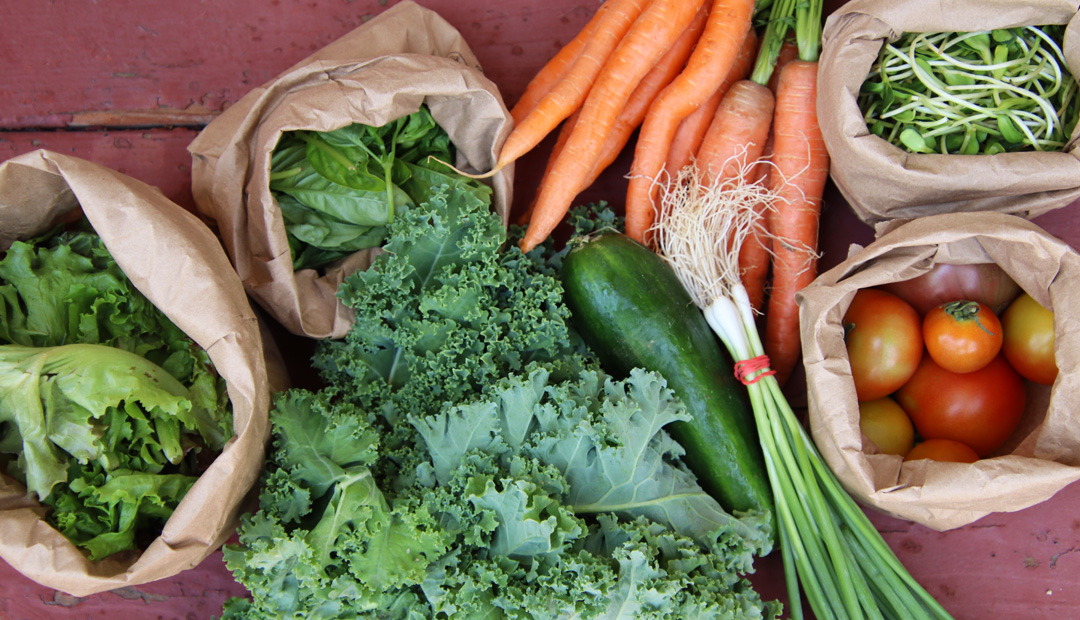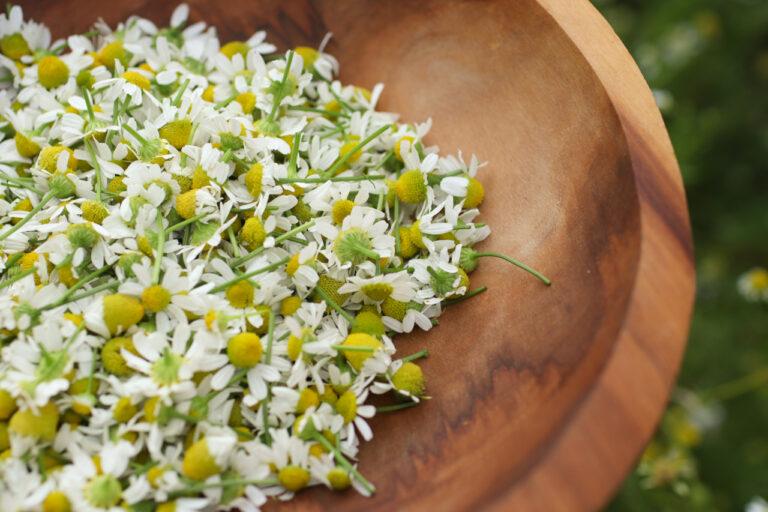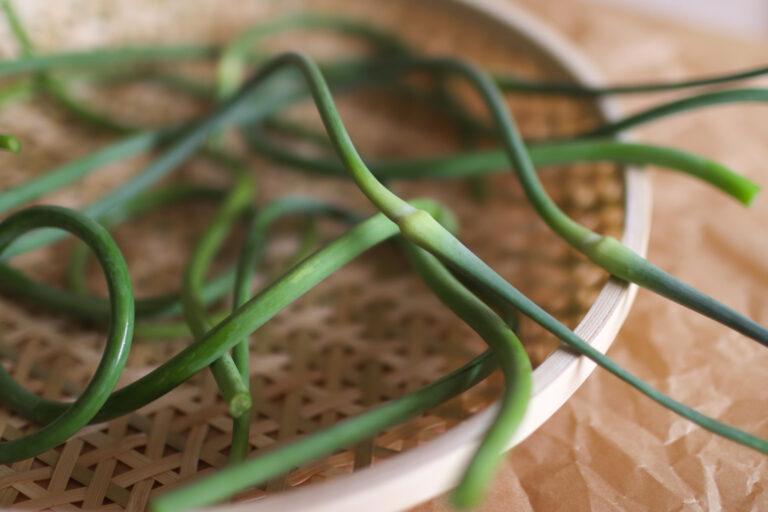What is Community Supported Agriculture (CSA)?
Today I am going to pick up a bag filled to the brim with carrots, kale, radishes, lettuce and turnips. They were all harvested within the past couple of days, they were grown without any sort of pesticides or fertilizers and I personally know the people who worked hard to bring them to me! This is what it’s like being part of a CSA program. I get to support local farms in a very fun way.

What Are CSAs?
Community Supported Agriculture, or CSA, is a program that small farms will employ in which customers can pre-purchase a weekly share of produce for a predetermined number of weeks. Every farm does it differently, but you will usually receive an email detailing what you are getting that week and then pick your share up at a predetermined time and location. You receive a variety of freshly harvested veggies and fruits (there are also CSA programs for meat, dairy, eggs and cut flowers!). These programs are intensely beneficial to everyone.
CSAs Benefit Members
It can be very difficult to find local produce in many areas. Other than farmer’s markets, CSAs are the only widespread way to get to know your local farmer and get the freshest, in-season produce. A lot of the vegetables were harvested within a few days of you receiving them and they were grown with care for your health and the land. You can talk to the farms before you sign up to learn about their growing methods and values; you certainly can’t have that kind of say over your food purchased at a grocery store.
There is immense value in knowing who is growing your food. Beyond knowing how it’s grown, you value the effort that went into the food and you feel a sense of connection with your community and your food.
CSAs are also just an incredibly fun way to buy your vegetables! Every week is an exciting surprise of what you received in your share, it’s enjoyable to connect with the people at the pick-up and you get to try vegetables that you wouldn’t otherwise. There are quite a few vegetables or specific vegetable varieties that I’ve never been able to track down from the grocery store and having a CSA has made me much more adventurous with my food.
CSAs Benefit Farms
It’s no secret that being a small farmer is challenging. Especially if they are regenerative farmers; a lot of times the methods that regenerative farmers use, while better for the environment, disqualify them from government subsidies that farmers generally depend on. CSA programs allow small farmers guaranteed income and cash flow upfront, before any vegetables have been grown. It also acts as a sort of insurance for them. If some crops do badly one season, they still make money from the CSA. This doesn’t affect CSA members overall; if there are a couple bad weeks, the farmers always work hard to make up the difference in later weeks with other veggies!
CSAs Benefit the Community
Local farms are a critical and often overlooked part of a community. They improve the economy by keeping the money for essential purchases local and providing employment opportunities.
Communities also benefit from having successful small farms by keeping supply chains short. When food has to go through multiple hands to reach your kitchen, there’s a lot that can go wrong. Most people won’t be able to rely on local farms exclusively, but communities that are more reliant on local farms and less reliant on the national and global food system have a much better safety net against food shortages.
Most importantly, small farms are part of the life and character of a community. Growing food has been an essential human activity for centuries and it’s a rich part of our history and culture. Knowing where and how your food was produced gives you a respect for your food, a connection with nature and a sense of purpose and independence. There’s a vital importance in keeping urban residents involved in rural farming, even if it’s just by engaging with farmers at weekly pickups.
CSAs Benefit the Climate
According to The Leopold Center for Sustainable Agriculture, food travels an average of 1,494 miles from farm to store. These long trips are massive contributors to carbon emissions. Not only do large trucks have to transport the produce, but the trucks also must be refrigerated, increasing the amount of fuel used. Purchasing any amount of your food locally will make a dent in the amount of carbon emissions caused by your food consumption. Local food is also generally packaged less than store-bought food, reducing plastic waste. It’s likely not possible for you to buy all of your groceries locally, but getting a CSA share will help you lower your footprint.
How to Find a CSA Farm
When I first decided to get a CSA share, I had a difficult time finding one. I live in an area where farming is relatively limited because of our climate, but there are still quite a few in my city! Here’s how you can locate one:
- If you are interested in regenerative farming, a good place to start would be Regeneration International. You can find regenerative farms and then peruse the farms’ websites to see if they offer CSA shares. This is how I found my current CSA farm and it brings me so much joy to know that the farm I’m supporting is doing so much to restore soil health, cut carbon emissions (they are 100% solar-powered!), and replenish the aquifers. I could write pages and pages bragging on them, but I will keep it to that.
- If this doesn’t work or you want a more straightforward way to find a CSA, go to this website. They list all of the CSA farms in your area with a nice bio to give you an idea of what they offer and what they stand for! From there, you can go to each farm’s website and learn more before making your decision.
Commonly Asked Questions about CSA
You may still have some concerns about becoming a CSA member. I’ve listed a few answers below from my perspective as a member, but I’d encourage you to reach out to the farm too! They will be able to answer questions more specific to their business.
Why is it so expensive?
First and foremost, I would challenge you to do some rough math. A lot of CSAs are similar to a comparable purchase at the grocery store (if your CSA farm is organic, compare it to organic produce at the store). A lot of times it only seems significantly more expensive because you are paying a large sum upfront instead of small purchases once or twice a week.
If it actually is a lot more expensive, consider why that may be. Large, commercial farms generally use more harmful farming practices, rely heavily on machines rather than human labor, and underpay those who do work for them. If you can handle the small increase to your grocery budget, paying for a CSA is worth the extra cost. You are investing in small farms and voting with your dollar. You are helping small farms continue to operate and making a world where well-paid human labor trumps machine labor, organic practices are valued and care is put into the food we eat. This is how food is supposed to be grown – it’s how it has been grown for centuries – and supporting small farms allows that to continue.
What if I get a vegetable I don’t like?
This is part of the fun of CSAs! You are going to end up trying vegetables you never would have purchased on your own. Through CSAs, I’ve tried fennel, turnips, and several types of squash that I wouldn’t have otherwise. I enjoyed them all and I am now growing one of those types of squash because I loved it so much! Push yourself to be adventurous with the food you get and if you truly don’t like it after trying it out in a couple different recipes, you can always give it away! You might have a friend that would enjoy it or you could offer it up in your local Buy Nothing group.
What if I don’t need as much food as they provide?
All of the CSAs I’ve looked into offer different sizes and the smallest one is very modest. If that isn’t an option for you, could you share with another person or household? We have split our CSA share with my parents for two seasons and it’s the perfect way to have variety with reasonable portions. At the end of the day, though, a CSA might not make sense for you and that is okay. You can always support local farms by purchasing at farmer’s markets and spreading the word to friends and family.
I already grow my own food. Why would I want a CSA?
CSA shares aren’t for everyone. A lot of my fellow gardeners grow enough vegetables on their own that they don’t need to purchase more. If that’s you, that’s awesome! I know as my garden grows I will eventually just purchase additional veggies at the farmer’s market on an as-needed basis. I will say, however, that the farm I buy from has each veggie available 2-3 weeks before the ones in my garden are ready! So though there has been overlap, they also have offered me more variety than I would have and expanded my seasonal eating a bit! If there’s a surplus of anything and I can’t eat it all, I preserve it so I can have local, regenerative veggies in the winter.







One Comment
Comments are closed.